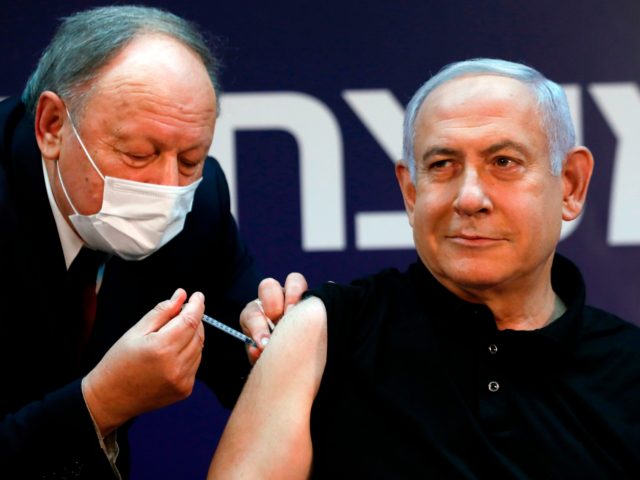Israel has seen a 60 percent drop in hospitalizations for people aged 60 and over in the three weeks after receiving the first shot of the Pfizer vaccine, an Israeli healthcare provider has shown, and only 0.015 percent of people were infected with the coronavirus in the week after receiving their second shot.
Israel’s Maccabi Healthcare Services, one of four of the countries HMOs, said Monday of 128,600 people who received the second shot a week ago, only 20 contracted the coronavirus – correlating with the 95 percent efficacy demonstrated in Pfizer’s own clinical trials.
The HMO further revealed hospitalizations began to decrease dramatically in the over-60s 18 days after receiving the first shot. Maccabi monitored more than 50,000 members.
“This is very important data,” head of infectious diseases at Israel’s largest hospital, Sheba Medical Center Galia Rahav, who is unconnected to the study, told The Times of Israel. “It has an impact because amid high infection rates and the spread of variants it’s hard to see from general figures how vaccination is influencing things.
“By giving an insight into hospitalizations among just those elderly people who were vaccinated, this data is valuable.”
The same HMO revealed data earlier this month that showed a 60 percent reduction in coronavirus infections three weeks after the first shot.
Among the general population, around 0.65 percent are infected in a given week, The Times of Israel reported citing a top immunologist, a stark contrast to the 0.015 percent infected after becoming fully vaccinated.
The report stressed Maccabi had no control group, however.
“While these are impressive results, it’s important to say that there is no direct control group or data about the demographics and geographical data of the vaccinated people,” the immunologist, Cyrille Cohen, told the paper.
Anat Ekka Zohar, the Maccabi analyst behind the research, said the excellent results could even prove that the “the vaccine is more effective than Pfizer thought it would be based on clinical trials.”
“While this is very early data, it is important data with broad relevance, as the whole world is looking to Israel for indications regarding how the vaccine will perform,” she said.

COMMENTS
Please let us know if you're having issues with commenting.